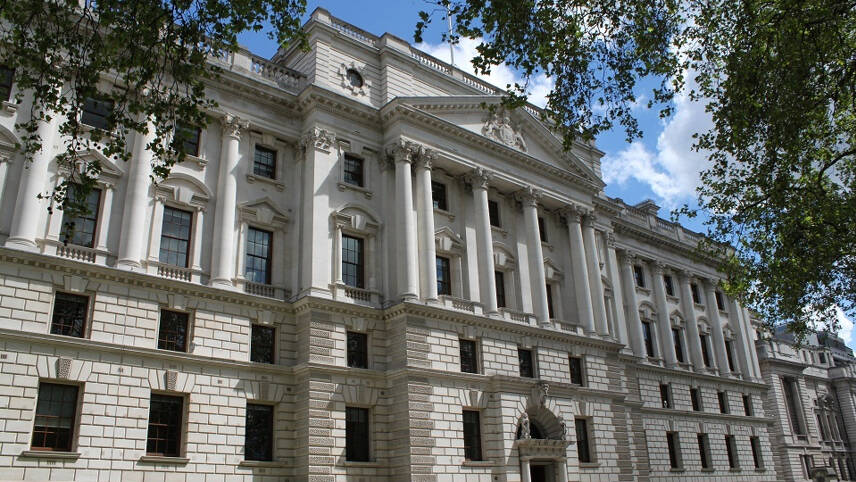Register for free and continue reading
Join our growing army of changemakers and get unlimited access to our premium content

UKEF promised an end to overseas fossil fuel finance in December 2020
UK Export Finance (UKEF) has this week published its annual results documents for the 2021-22 financial year, confirming that it allocated a total of £7.4bn of support. Key sectors supported included manufacturing, healthcare and low-carbon energy. For the first time in the agency’s history, no allocations went directly to fossil fuel extraction or fossil-fuelled electricity generation.
MPs first began probing the environmental impact of UKEF’s activities in 2018, to assess whether it was supporting international activities which would undermine the Paris Agreement or which would contradict the UK’s domestic ambitions. NGOs subsequently raised concerns about the emissions of the fossil fuel projects it was backing, and how these projects could impede developing and emerging economies from delivering a just transition to clean energy.
In early 2020, the Government declined to make the interventions recommended by MPs to transition UKEF’s support away from fossil fuels. But a U-turn was made in December 2020, when Prime Minister Boris Johnson said the agency would end direct support for fossil fuel projects overseas with “very limited exceptions” for the 2021-22 financial year.
The new reports from UKEF confirm that there was no direct support for fossil fuel extraction at home or abroad during the financial year. It states that, after the formation of a 20-person renewable energy and transition underwriting team in late 2021, it has been scaling support for sectors including electric vehicle (EV) manufacturing and clean power generation, with 12 overseas projects classed specifically as “sustainable” supported during the financial year. One of these was a high-speed train system in Turkey.
UKEF has also been providing ‘transition’ finance, to help hard-to-abate and high-emission sectors to change their technologies and processes and to upskill staff to deal with their new roles. Sectors to receive this kind of finance include building materials manufacturing, road transport, aviation and construction.
Other priority finance areas have included healthcare and pharmaceuticals, with a specific focus on ending the global Covid-19 pandemic, and, since February 2022, supporting Ukraine.
UKEF has stated that, “in time”, it wants at least half of new business to come from sustainable financing areas with a “pronounced social or environmental benefit”.
Emissions target and mission statement
MPs on the Environmental Audit Committee (EAC) claim that 96% of the £2.6bn spent by UKEF on energy exports abroad between 2013 and 2018 went towards fossil fuels.
While the agency will no longer support new projects, it retains exposure to existing projects and those in the pipeline. The new UKEF documents confirm that the body will aim to reduce the absolute emissions of all exposure in the oil and gas sector by 75% by 2030. In some cases, this will involve engaging with the projects to decrease production or otherwise abate emissions. In other cases, divestment may be needed.
UKEF has also pledged to reduce the emissions intensity of its exposure to the power generation and distribution sector by 58% by 2030. It claims that these targets are suitable to lay the foundations for net-zero operations by 2050 across all financed firms and projects. There are not yet sector-specific emissions requirements for other sectors.
Additionally, UKEF has updated its mission statement. It now reads: “We advance prosperity by ensuring no viable UK export fails for lack of finance or insurance, doing that sustainably and at no net cost to the taxpayer.”
The documents add that its definition of sustainability includes complying with national and international laws and striving to meet best-practice standards regarding climate, nature, human rights, social sustainability, debt sustainability and eliminating financial crime.
Join the conversation during edie’s Green Finance Focus Week
Readers interested in ESG investing and net-zero finance are encouraged to mark edie’s upcoming Green Finance Focus Week (18-22 July) in their diaries.
Throughout the week, the edie editorial team will be publishing a range of features, interviews, reports and more to inform and inspire readers around making sense of the ESG landscape and scaling up finance to accelerate the transition to a sustainable future. We will also be hosting a series of online Inspiration Sessions on the afternoon of Thursday 21 July, sponsored by Inspired Energy and featuring expert speakers from organisations including Natwest, Standard Chartered and the We Mean Business Coalition. Click here for details and to register.


Please login or Register to leave a comment.